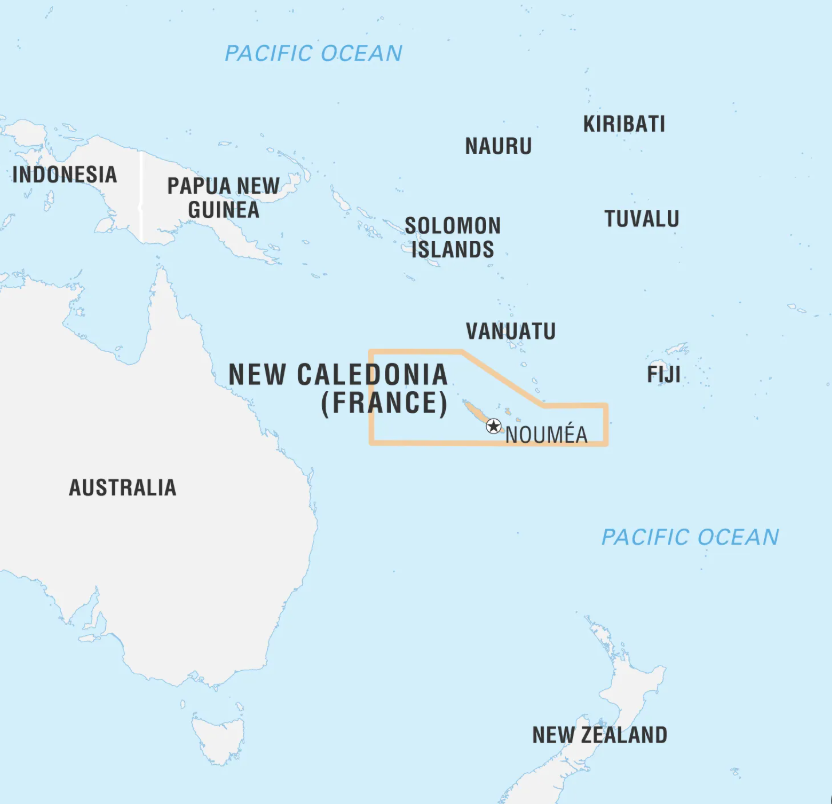Place In News
New Caledonia
- 03 Jun 2025
- 2 min read
France’s recent effort to establish a new political agreement for New Caledonia has been unsuccessful, increasing uncertainty about the territory’s future. This follows years of unrest and three referendums held between 2018 and 2021, in which independence was rejected.
New Caledonia
- Geography: It is a French overseas territory in the southwestern Pacific Ocean, about 1,500 km east of Australia.
- It includes Grande Terre (with capital Nouméa), the Loyalty Islands (Ouvéa, Lifou, Tiga, Maré), Belep archipelago, Isle of Pines, and remote islands.
- Historical Background: Inhabited originally by Kanaks (indigenous Melanesian inhabitants of New Caledonia), it was seized by France in 1853. Kanaks gained French citizenship post-World War II, but 1960s migration reduced their majority, sparking independence movements.
- The Matignon Agreements (1988) and Nouméa Accord (1998) promised 3 independence referendums. All votes favoured France, though the 2021 referendum was boycotted by pro-independence groups.
- Rivers & Climate: The longest river is the Diahot (100 km). It has a subtropical climate, the east coast receives significantly more rainfall than the west coast.
- Biodiversity: Home to Amborella trichopoda, a rare plant species and endemic birds like the kagu.
- Its lagoons have been a UNESCO World Heritage site since 2008.
Overseas Territory:
- It refers to a region or land that is geographically separated from a country’s mainland but remains under its sovereignty and administration.
| Read More: Referendum in New Caledonia |







